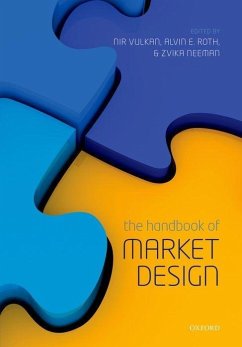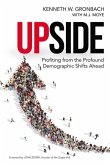Economists often look at markets as given, and try to make predictions about who will do what and what will happen in these markets. Market design, by contrast, does not take markets as given; instead, it combines insights from economic and game theory together with common sense and lessons learned from empirical work and experimental analysis to aid in the design and implementation of actual markets In recent years the field has grown dramatically, partially because
of the successful wave of spectrum auctions in the US and in Europe, which have been designed by a number of prominent economists, and partially because of the increase use of the Internet as the platform over which markets are designed and run There is now a large number of applications and a
growing theoretical literature.
The Handbook of Market Design brings together the latest research from leading experts to provide a comprehensive description of applied market design over the last two decades In particular, it surveys matching markets: environments where there is a need to match large two-sided populations to one another, such as medical residents and hospitals, law clerks and judges, or patients and kidney donors It also examines a number of applications related to electronic markets, e-commerce,
and the effect of the Internet on competition between exchanges.
of the successful wave of spectrum auctions in the US and in Europe, which have been designed by a number of prominent economists, and partially because of the increase use of the Internet as the platform over which markets are designed and run There is now a large number of applications and a
growing theoretical literature.
The Handbook of Market Design brings together the latest research from leading experts to provide a comprehensive description of applied market design over the last two decades In particular, it surveys matching markets: environments where there is a need to match large two-sided populations to one another, such as medical residents and hospitals, law clerks and judges, or patients and kidney donors It also examines a number of applications related to electronic markets, e-commerce,
and the effect of the Internet on competition between exchanges.








